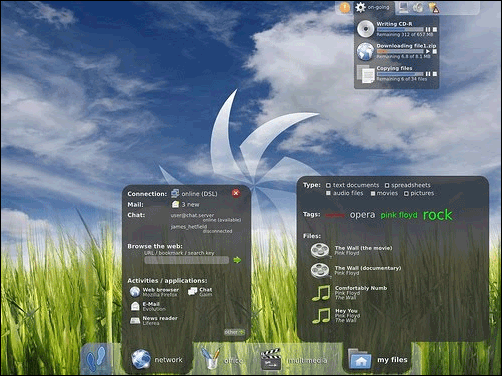The legacy of the Vista debacle tarnished Microsoft’s brand after it recovered from ME with Windows XP, however with the release of Windows 7 Microsoft made up for Vista’s mistakes and put the PC back in the race. Windows 7 made significant improvements in speed, functionality, and ease of use. Windows 8 faces some unique and significant challenges as Microsoft gears up for the next release of Windows. Among those is the heirloom development culture at Microsoft, the increasing push to the cloud, hardware compatibility issues, and computer repairs issues with computer hookups. It would be nice to think that Windows 8 will finally get the hardware issues under control.
The Possibilities
Windows 8 is currently shaping up to be another groundbreaker. Industry scuttlebutt is talking about 128-bit architecture, which would be a real achievement. If true, this means we would be breaking out of the 64-bit paradigm, combined with multicore hardware, the potential across media and computing functions is huge.
The fact is that most consumer software functions don’t really need huge architecture, but handling massive data loads, graphics, media streaming and gaming would benefit instantly. 128-bit would be seamless with extra capacity on current software. 128-bit security functions could be a lot harder to crack, too, with massive number crunching possibilities.

There have been further mutterings about improved graphics, and that does seem to be the case from the sieve-like leaking of screen shots. The images are good, and there is a distinct taste of “vector” in a lot of the materials shown online, similar to Windows Phone 7, as well as High Definition and other formats.
Sadly, the touch-screen approach and a “me too” tablet motif will likely appear in Windows 8. Touch screens are as unhygienic as they are outdated, and it’s a bit much to expect people to be too impressed with yet another tablet. People need cost effective high performance computers, not another tablet platform. If the tablets have the power of a high end PC, are cost effective, and can do the job of a laptop, great. If not, who cares?
The Risks
Microsoft, which has a unique place in history and a good reputation, is at risk of not being able to deliver what consumers expect from the next iteration of Windows. Apple’s growing market share, Google’s entrance in the operating system market is creating a set of expectations that Microsoft needs to understand and use that information to meet those expectations.
The crunch is likely to come from something simple, like computer support, in which the user finds out that their hardware is not compatible with Windows 8 or that someone finds massive security holes in a new OS. Microsoft has been getting complaints for nearly a decade about things like this and to date Microsoft has done everything possible to help mitigate these issues. However, there is only so much Microsoft can do with regards to vendor support, especially when hardware vendors do not want to spend the money to support their products beyond their lifecycles.
Let us hope that when completed, Windows 8 meets user’s expectations, with the sort of stability and strength of Windows XP and Windows 7, which were well-tested and reliable iterations of Windows.
Image Via Sans Microsoft Lounge




